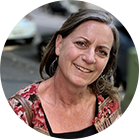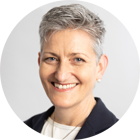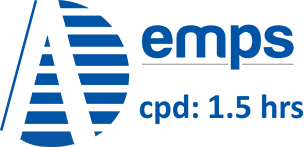Join AIDR, and the Collaborating4Inclusion project team as we invite expert speakers to explore how government, emergency services, people with disability and the services that support them are working together to put person-centered and capability-focused approaches to DIDRR into action.
Webinar two: Actions that people with disability and their representatives can take on DIDRR
The biggest risk to safety and well-being of people with disability in emergencies is their exclusion from emergency management practices and policy decision-making.
Organisations of people with disability (OPDs), carer organisations and advocacy organisations can play a significant role in disaster policy, planning and interventions. Through their lived experience, leadership and roles as disability advocates, these groups represent the voice and perspective of their members. With in-depth understanding of the factors that increase risk for people with disability in emergencies, they also have access to informal networks of support and communication. This information is not readily available within mainstream emergency management.
In this webinar, we will listen and learn from people with disability, OPDs, carer representatives and advocates to learn about how they are taking action on DIDRR. We will share case studies that showcase how to keep people with disability and their support needs at the centre of disability inclusive disaster risk reduction (DIDRR). We will consider peer-led approaches, implementation challenges and how they are being tackled, and what needs to happen next.
Guest speakers
Michelle Villeneuve, Associate Professor & Deputy Director, Centre for Disability Research and Policy, The University of Sydney
 Associate Professor Michelle Villeneuve is the Deputy Director at The University of Sydney Impact Centre for Disability Research and Policy. Michelle leads an international program of research that addresses inequities that people with disability experience in everyday living and situations of natural hazard disaster and other emergencies. Michelle is leading the development of Disability Inclusive Disaster Risk Reduction (DIDRR) in Australia - bringing together health, community, disability and emergency services sectors to establish cross-sector DIDRR policy and practice.
Associate Professor Michelle Villeneuve is the Deputy Director at The University of Sydney Impact Centre for Disability Research and Policy. Michelle leads an international program of research that addresses inequities that people with disability experience in everyday living and situations of natural hazard disaster and other emergencies. Michelle is leading the development of Disability Inclusive Disaster Risk Reduction (DIDRR) in Australia - bringing together health, community, disability and emergency services sectors to establish cross-sector DIDRR policy and practice.
Michelle has over 20 years of experience working in regions of conflict and natural hazard disaster to develop community-led services and re-build opportunities for people with disability, including those acquired by human conflict and natural disaster.
Her partnership research keeps people with disability and their support needs at the centre of development and change.
Michelle Moss, Chief Executive Officer, Queenslanders with Disability Network
 Michelle Moss has worked in the human services sector for almost 30 years including disability, health, and domestic violence.
Michelle Moss has worked in the human services sector for almost 30 years including disability, health, and domestic violence.
Michelle has worked in both Government and non-Government sectors in a variety of roles including direct support work, complex behaviour support, policy, training and education, consumer and community engagement and project management. Michelle’s work is founded on a strong commitment to ensuring the voice of people is part of the public policy and the design, planning and evaluation of services and systems. Michelle has recently been appointed Chief Executive Officer of Queensland with Disability Network.
QDN is a state-wide network of, for, and by people with diverse disability. The network regularly brings members together to discuss relevant social policy issues that impact upon their lives. QDN has 30 peer support groups led by people with disability for people with disability that meet face to face and virtually across the state. QDN also undertakes specific project work to address gaps and impacts of services and systems to deliver better outcomes for Queenslanders with disability.
Peter Tully, Board Member, Queenslanders with Disability Network
 From an IT business in an inner suburb of Brisbane to campaigning with Every Australian Counts, Peter maintains his dream to see people with disability flourish. Peter, with his wife Linda, joined Queenslanders with a Disability Network (QDN) which led to Peter’s work in community advocacy. Together, Linda and Peter shine a focus on people with disability within their community.
From an IT business in an inner suburb of Brisbane to campaigning with Every Australian Counts, Peter maintains his dream to see people with disability flourish. Peter, with his wife Linda, joined Queenslanders with a Disability Network (QDN) which led to Peter’s work in community advocacy. Together, Linda and Peter shine a focus on people with disability within their community.
Peter plays a prominent role in the development of disability awareness, advocating at every point of community connections and at all levels of government. In working with people either one-on-one or in workshop format, Peter likes to create a ‘safe zone’, that is, an environment where people are free to speak and so begin their journey to a more inclusive lifestyle. In his work towards building inclusive communities, Peter represents on the QDN Board, QDeNgage, numerous committees, government and industry roundtables and enquiries. Peter is a member of the Queensland Disability Advisory Council (QDAC) and the NDIS Industry Advisory Council (IAC).
Ainslie Whitburn, Project Coordinator, Australian Federation of Disability Organisations (AFDO)
 As AFDO’s project coordinator, Ainslie is partnering with Fire and Rescue NSW, to deliver the Fire Proofing Vulnerable Communities project. This state-wide risk reduction education and training initiative, funded by the NSW Disaster Risk Reduction Fund, aims to create greater connection between people with disability and local fire services, increasing their preparedness and ability to act in emergencies.
As AFDO’s project coordinator, Ainslie is partnering with Fire and Rescue NSW, to deliver the Fire Proofing Vulnerable Communities project. This state-wide risk reduction education and training initiative, funded by the NSW Disaster Risk Reduction Fund, aims to create greater connection between people with disability and local fire services, increasing their preparedness and ability to act in emergencies.
Ainslie has completed a Bachelor Arts (Psychology) and a Graduate Diploma in Education at the University of Newcastle, NSW. She is currently completing the Australian Institute of Company Directors’ (AICD) Company Directors Course as part of the National Disability Leadership Program.
Ainslie has worked for NFP organisations and local government, partnering with a range of businesses, community organisations and government stakeholders to formulate policy and planning for a more accessible and inclusive community.
Ainslie is a non-executive Director on the Board of Coastlink, a disability and aged care provider on the Central Coast, where she lives.
Dr Tonia Crawford, Director, Pre-registration programmes & Senior Lecturer, Susan Wakil School of Nursing and Midwifery
 Tonia is a co-investigator on the Leave Nobody Behind Project. She is a Registered Nurse drawing on 20 years of clinical experience in nursing and community health to teach community health nursing, law and ethics, and social determinants of health in Bachelor and Master’s degrees in nursing since 2007. Tonia has particular interest in health communication across diverse languages and cultures, and has collaborated on a number of successful grants and research projects. She is currently contributing to projects supporting capabilities, support needs and preparedness for disability inclusive disaster risk reduction which include Culturally and Linguistically Diverse (CALD) and other minority groups. Tonia’s other research focus is on nurse education and the development of academic and social supports, including the adoption of interactive and collaborative learning methods that strengthen the learning and cross-cultural interactions for students from CALD backgrounds.
Tonia is a co-investigator on the Leave Nobody Behind Project. She is a Registered Nurse drawing on 20 years of clinical experience in nursing and community health to teach community health nursing, law and ethics, and social determinants of health in Bachelor and Master’s degrees in nursing since 2007. Tonia has particular interest in health communication across diverse languages and cultures, and has collaborated on a number of successful grants and research projects. She is currently contributing to projects supporting capabilities, support needs and preparedness for disability inclusive disaster risk reduction which include Culturally and Linguistically Diverse (CALD) and other minority groups. Tonia’s other research focus is on nurse education and the development of academic and social supports, including the adoption of interactive and collaborative learning methods that strengthen the learning and cross-cultural interactions for students from CALD backgrounds.
Sarah Judd-Lam, Executive Manager, Policy, Development and Research, Carers NSW
 Sarah has a background in social policy research and has been a part of the Carers NSW Policy team for 10 years. As Executive Manager, Policy, Development and Research, she oversees Carers NSW extensive evidence based policy advice and systemic advocacy, as well as the development and delivery of key projects and resources to improve carer inclusion across a range of service settings. Since 2019, in partnership with the Education and Training team, a key focus of the Carers NSW Policy team has been co-developing with carers and other key stakeholders resources and training on natural disaster preparedness. The Policy team has also worked closely with Carers NSW staff providing flood relief and service navigation support to flood affected carers in the Northern Rivers region of NSW since the major flooding events of 2022, informing their research and systemic advocacy activities.
Sarah has a background in social policy research and has been a part of the Carers NSW Policy team for 10 years. As Executive Manager, Policy, Development and Research, she oversees Carers NSW extensive evidence based policy advice and systemic advocacy, as well as the development and delivery of key projects and resources to improve carer inclusion across a range of service settings. Since 2019, in partnership with the Education and Training team, a key focus of the Carers NSW Policy team has been co-developing with carers and other key stakeholders resources and training on natural disaster preparedness. The Policy team has also worked closely with Carers NSW staff providing flood relief and service navigation support to flood affected carers in the Northern Rivers region of NSW since the major flooding events of 2022, informing their research and systemic advocacy activities.
Courtney Jones, Program Lead - Care2Prepare, Carers NSW
 Before joining Carers NSW in 2022, Courtney led disaster welfare operations in the Hunter and Central Coast region. She was deployed for over three months during the 2019-2020 bushfire emergency as liaison between combat agencies and community partners and oversaw operations of evacuation centres in two local government areas. She was embedded at the Regional Emergency Operations Centre during the 2021 mid-North Coast floods, coordinating response teams in the field and managing information channels for situational reporting and ministerial updates.
Before joining Carers NSW in 2022, Courtney led disaster welfare operations in the Hunter and Central Coast region. She was deployed for over three months during the 2019-2020 bushfire emergency as liaison between combat agencies and community partners and oversaw operations of evacuation centres in two local government areas. She was embedded at the Regional Emergency Operations Centre during the 2021 mid-North Coast floods, coordinating response teams in the field and managing information channels for situational reporting and ministerial updates.
By focussing on planning and preparedness, Courtney was successful in deploying highly trained, multi-skilled teams to impacted areas. Her strengths as an effective decision maker led to recognition and she participated in local emergency planning panels and exercises. In 2020 she received the NSW Premier's Bushfire Emergency Citation for service and in 2021 she was integral to the disaster welfare response to the pandemic in the Hunter region.
Webinar host
Margaret Moreton, Executive Director, Australian Institute of Disaster Resilience
About Collaborating4Inclusion
The Collaborating4Inclusion research team works in partnership with government and emergency services, people with disability, and the services that support them to co-produce collaborative action so that nobody is left behind when disasters strike.
The Leave Nobody Behind project has been working across New South Wales and Nationally to develop research, policy, and practice that builds cross-sector community capacity to ensure that nobody is left behind when disasters strike. The final tranche in the project will be the development of a national framework for cross-sector collaborative action on DIDRR, supported and enabled by co-produced tools that everyone can use.



 This webinar has been approved for EMPS Continuing Professional Development (CPD) points. The webinar has been allocated 1.5 hours of CPD.
This webinar has been approved for EMPS Continuing Professional Development (CPD) points. The webinar has been allocated 1.5 hours of CPD.